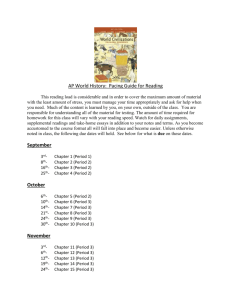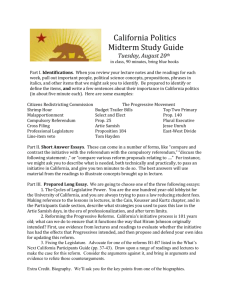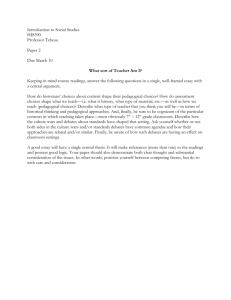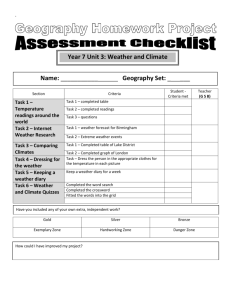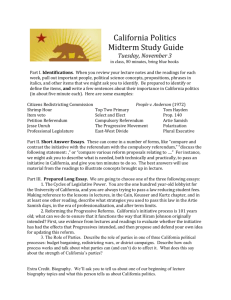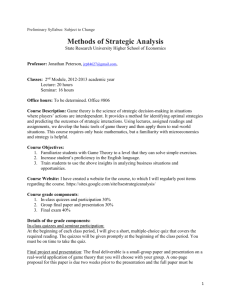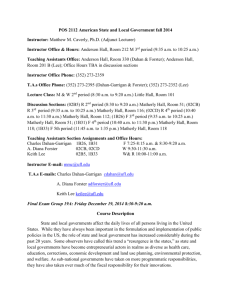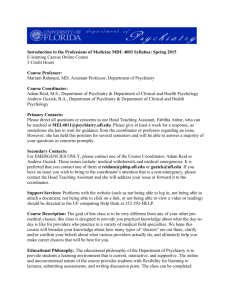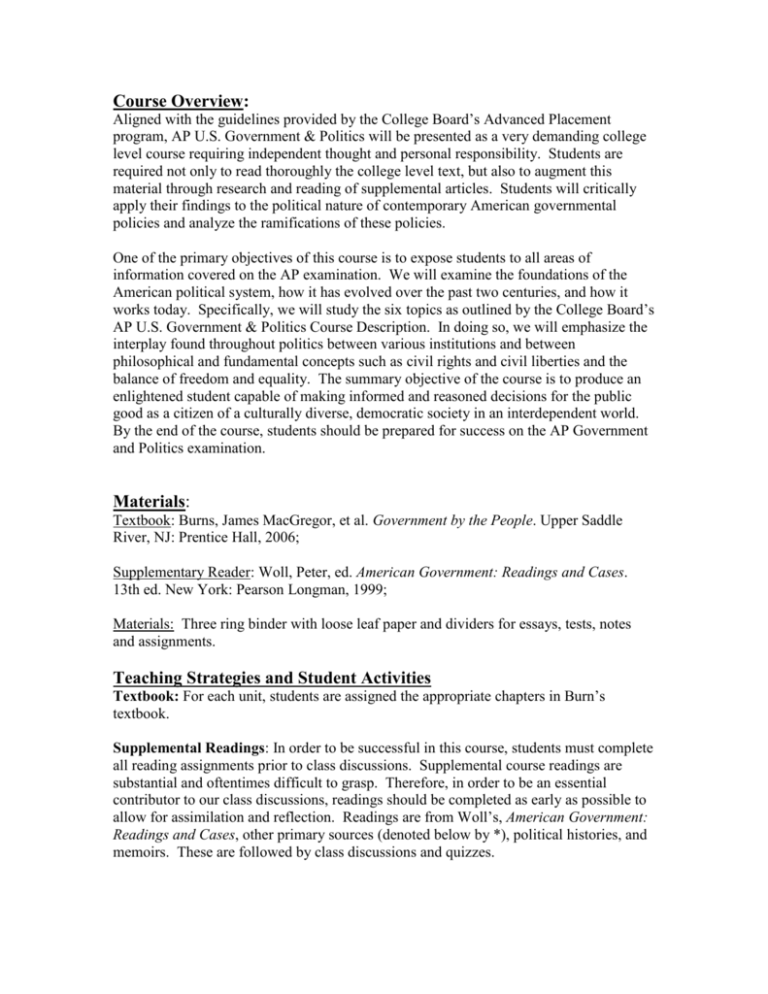
Course Overview:
Aligned with the guidelines provided by the College Board’s Advanced Placement
program, AP U.S. Government & Politics will be presented as a very demanding college
level course requiring independent thought and personal responsibility. Students are
required not only to read thoroughly the college level text, but also to augment this
material through research and reading of supplemental articles. Students will critically
apply their findings to the political nature of contemporary American governmental
policies and analyze the ramifications of these policies.
One of the primary objectives of this course is to expose students to all areas of
information covered on the AP examination. We will examine the foundations of the
American political system, how it has evolved over the past two centuries, and how it
works today. Specifically, we will study the six topics as outlined by the College Board’s
AP U.S. Government & Politics Course Description. In doing so, we will emphasize the
interplay found throughout politics between various institutions and between
philosophical and fundamental concepts such as civil rights and civil liberties and the
balance of freedom and equality. The summary objective of the course is to produce an
enlightened student capable of making informed and reasoned decisions for the public
good as a citizen of a culturally diverse, democratic society in an interdependent world.
By the end of the course, students should be prepared for success on the AP Government
and Politics examination.
Materials:
Textbook: Burns, James MacGregor, et al. Government by the People. Upper Saddle
River, NJ: Prentice Hall, 2006;
Supplementary Reader: Woll, Peter, ed. American Government: Readings and Cases.
13th ed. New York: Pearson Longman, 1999;
Materials: Three ring binder with loose leaf paper and dividers for essays, tests, notes
and assignments.
Teaching Strategies and Student Activities
Textbook: For each unit, students are assigned the appropriate chapters in Burn’s
textbook.
Supplemental Readings: In order to be successful in this course, students must complete
all reading assignments prior to class discussions. Supplemental course readings are
substantial and oftentimes difficult to grasp. Therefore, in order to be an essential
contributor to our class discussions, readings should be completed as early as possible to
allow for assimilation and reflection. Readings are from Woll’s, American Government:
Readings and Cases, other primary sources (denoted below by *), political histories, and
memoirs. These are followed by class discussions and quizzes.
Current Events: To help reach our goal of creating informed citizens, students will be
required to read current newspaper and magazine articles from the NewYork Times and/or
the Wall Street Journal; excerpts from Time, Newsweek, and/or the Economist; watch
news footage and documentaries from CNN and C-SPAN; view numerous web sites.
Students will begin to learn to be “wide-readers” by reading TIME magazine on a weekly
basis.
Debates/Presentations:Regularly scheduled debates provide help to prepare students for
the participation in the democratic process itself. Debates teach students investigation and
intensive analysis of significant contemporary problems. Debates also develop student
proficiency in critical thinking and the ability to make prompt, analytical responses. Many
debates will take place in a persuasive, PBL/Prezi/Ignite format which allows the audience to
judge for themselves how relevant the speaker’s argument is.
Quizzes: Announced and unannounced quizzes covering lectures and assigned readings
will be given frequently to insure and assess timely and close reading of assigned
materials.
Tests: Multiple Choice Exams will be given at the end of each chapter. Exams are given
in the same format as that of the A.P. exam. Due to time restraints exams will last two
days. The first day will consist of approximately 60 multiple choice questions with five
options from which to choose. Free Response Essays The second part of each exam
requires students to respond to two essay prompts like those on the national exam. The
FRQ’s often require students to use maps, graphs, and/or other data which students must
analyze, interpret, synthesize, and clearly explain.
Free Response Essays: Free Response Essays are also given approximately every two
weeks or one per chapter and several during the review sessions at the end of the year.
Oftentimes, the students are asked to respond to the College Board’s analytical FRQs.
Film: Includes news clips, documentaries, and occasional feature films such as A Perfect
Candidate, The War Room, Gideon’s Trumpet, The Fog of War, Thirteen Days. Films
are typically accompanied by supplemental reading, discussion questions, or quiz.
Lectures: There will be many lectures and students will be expected to listen, take notes
and participate in these lectures. Lectures are usually conducted with a PowerPoint
presentation using many charts, graphs and political cartoons to reinforce the skills of
interpretation and analysis of political information.
Course Credit: **** IN ORDER TO EARN AP CREDIT, YOU MUST TAKE THE
AP U.S. GOVERNMENT AND POLITICS EXAM IN THE SPRING. YOU MAY OPT
OUT OF TAKING THE AP EXAM, BUT YOU WILL LOSE AP CREDIT.

